Results for 2023Business
What passed. What didn’t. And what it means to your bottom line.
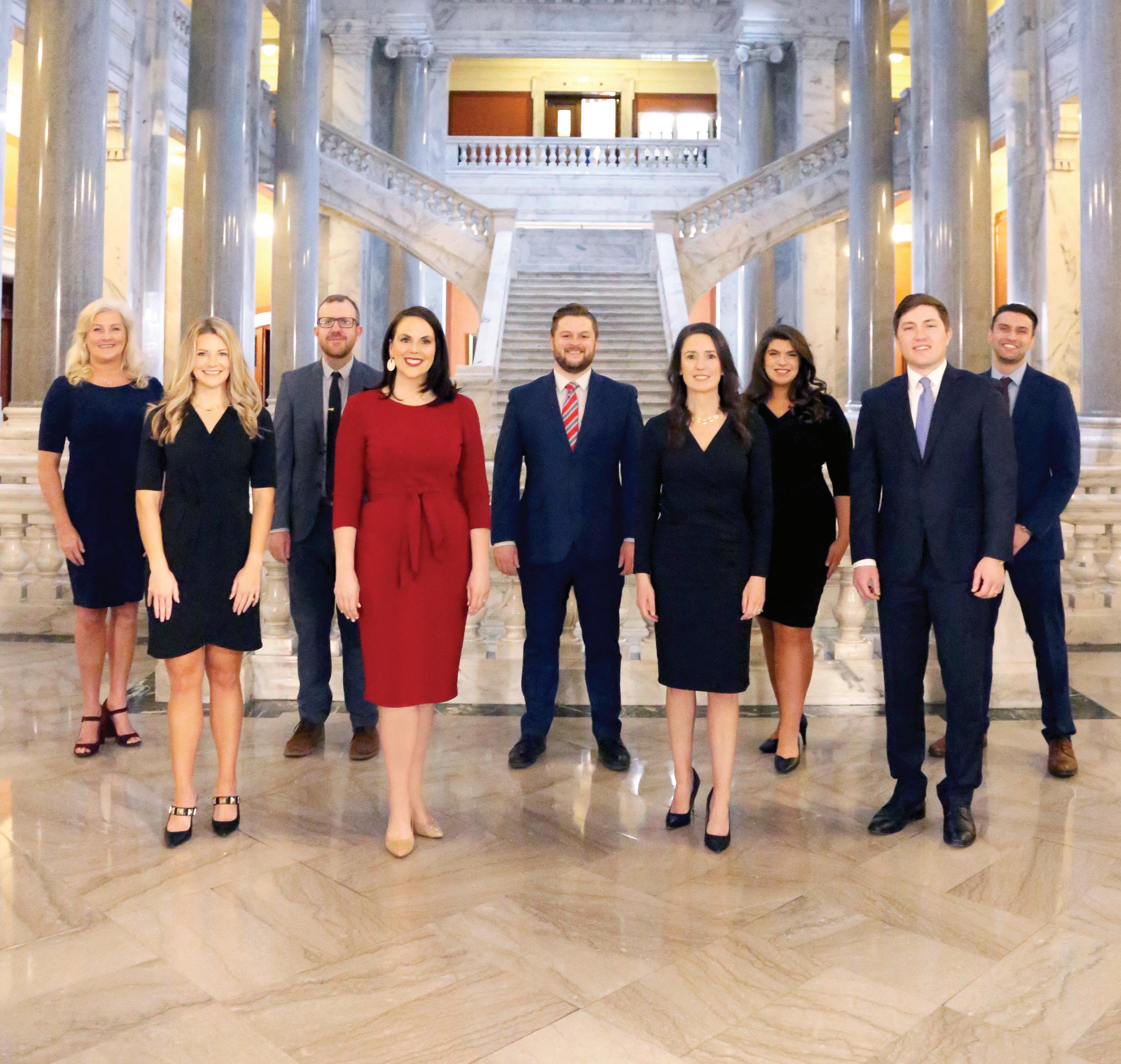
Legislature delivers again for




What passed. What didn’t. And what it means to your bottom line.

Legislature delivers again for









While legislative leadership tempered expectations heading into the 2023 legislative session, the Kentucky General Assembly delivered in a big way for the business community, continuing efforts to make Kentucky more competitive and address workforce challenges. The work of the General Assembly resulted in more than $1.5 billion in savings for businesses.
Despite the short, 30-day session that typically doesn’t result in substantial revenue policy, the General Assembly swiftly enacted an individual income tax reduction for the second year in a row with House Bill 1. One of the last bills to pass this session sets a phase-out to the bourbon barrel tax, an unfair, jobkilling tax on one of Kentucky’s signature industries as well as a pass-through entity tax that alleviates the federal tax burden on certain businesses.
In dramatic fashion, with just hours left in the 2023 session, the Senate passed House Bill 551, the popular sports wagering bill, which will soon allow Kentuckians to wager on their favorite games online and at Kentucky racetracks.
Piggy-backing on their successes of 2022, the legislature passed several bills to address workforce challenges, including additional study of benefits cliffs, and Senate Bill 54, which expands the Kentucky Educational Excellence Scholarship to apply to proprietary schools for the most in-need professions.

While the Chamber supported various bills throughout the 2023 session, it also opposed and defeated other measures that would significantly raise the cost of doing business in Kentucky. One was Senate Bill 15, which sought to create data privacy standards like those enacted in Europe and California. This would have cost Kentucky businesses hundreds of millions in compliance fees, litigation costs, and lost marketing opportunities.
Though it may seem like politics can be divisive, the General Assembly saw passage of many bills with support from both sides of the aisle, including legislation supporting signature industries, addressing workforce challenges, and tackling the substance use disorder crisis.
Reflecting on the 2023 session, I would never have imagined we would come close to topping our success from the 2022 General Assembly. However, the 2023 session gave it a serious challenge, again making great strides for the job creators of the Commonwealth. Policy matters, and the Kentucky Chamber applauds the legislature on another great session and looks forward to working together to reach our full economic potential.
“
Though it may seem like politics can be divisive, the General Assembly saw passage of many bills with support from both sides of the aisle, including legislation supporting signature industries, addressing workforce challenges, and tackling substance use disorder.Ashli Watts PRESIDENT & CEO
The Kentucky Chamber’s advocacy efforts continue to result in major returns for Kentucky’s business community, saving businesses an estimated $1.553 billion in the 2023 legislative session. This equates to a savings of $921 per employee. This marks the fourth year in a row of savings equal to more than a billion dollars for the business community thanks to the General Assembly and the Chamber’s aggressive advocacy. Every dollar saved for businesses is another dollar to be reinvested in the Commonwealth’s economy. Employer savings from actions by the General Assembly and advocacy by the Chamber have steadily increased since 2017, when savings for businesses surpassed half-a-billion dollars.1

1.553 $ Billion TOTAL SAVINGS
921 for each employee in the Commonwealth $
(To the Kentucky Business Community Under Normal Economic Conditions)
House Bill 1 reduced Kentucky's individual income tax rate from 4.5 percent to 4.0 percent effective January 1, 2024. While this bill will save Kentucky taxpayers an estimated $630 million in reduced income taxes, it will also have a direct and positive impact on employers with an estimated $85.8 million in savings. Many businesses — especially small businesses — pay income taxes at the individual level, meaning this legislation will save money for small businesses and lead to reinvestments in our local communities.
House Bill 360 and House Bill 5 created an optional pass-through entity tax that would enable many business owners to reduce their federal income tax burden by allowing them to take full advantage of the federal state and local tax deduction. Estimates have suggested that this provision could save Kentucky owners of pass-through businesses up to $40 million on their federal income tax liability.
House Bill 551 authorized sports wagering in Kentucky. Based on previous estimates, this legislation is anticipated to generate at least $23 million per year in new revenues, the majority of which will go towards paying down Kentucky’s unfunded pension liability. Reducing Kentucky’s pension liabilities through new revenues generated by sports wagering will ultimately save Kentucky taxpayers down the road.
85.8 $ Million
40 $ Million
23 $ Million
Senate Bill 15 would have imposed costly data mandates on employers similar to what California has done and would have made Kentucky a more difficult and expensive place to do business. Data mandates like those proposed by Senate Bill 15 would cost employers an estimated $600 million to $1.2 billion in compliance costs, market inefficiencies, and litigation based on a research model created by the Information Technology and Innovation Foundation.
Legislation like Senate Bill 32 and House Bill 471 would have imposed new wage mandates on employers. While many employers have dramatically increased wages in recent years, mandates like those proposed in these bills would still increase costs for employers, lead to less job creation, and likely reduce jobs in some industries.
House Bill 280 would have required Kentucky employers to provide 12 weeks of paid parental leave but established no mechanism for covering the cost of benefits or providing financial assistance for impacted employers. The bill also delegated wide-ranging authority to state agencies to implement the program and address major policy questions. Estimates of the cost to implement a paid parental leave program in Kentucky are around $200 million.
Kentucky’s repeal of its prevailing wage statutes in 2017 has reduced costs for businesses and state and local governments. Legislative proposals such as House Bill 34 and House Bill 366 would reverse this progress. Past estimates of savings for employers have been adjusted for inflation in this estimate.
House Bill 451 would have imposed sourcing mandates for materials used in public construction projects that would inflate costs and make projects more expensive. This estimate adjusts estimated costs of past legislation for inflation, though some of these costs may be mitigated by the inclusion of a proposed waiver for certain projects.
600 $ Million
297 $ Million
202 $ Million
234 $ Million 70.3 $ Million
House Bill 111 sought to abolish Kentucky's flat income tax structure and raise taxes on both employers and workers. While an estimate of this bill's fiscal impact is not available, it would likely have resulted in a tax increase on many employers and workers comparable to the savings created by House Bill 1. Other legislative proposals in the 2023 session such as an inadvertent tax on digital advertising and an effort to limit Kentucky’s manufacturing supplies sales tax exemption also would have increased cost on employers, though exact estimates are indeterminable.
House Bill 224 would have legitimized third-party lawsuit lending in Kentucky. This would drive up the overall cost of litigation and make Kentucky's legal liability climate even more uncompetitive.
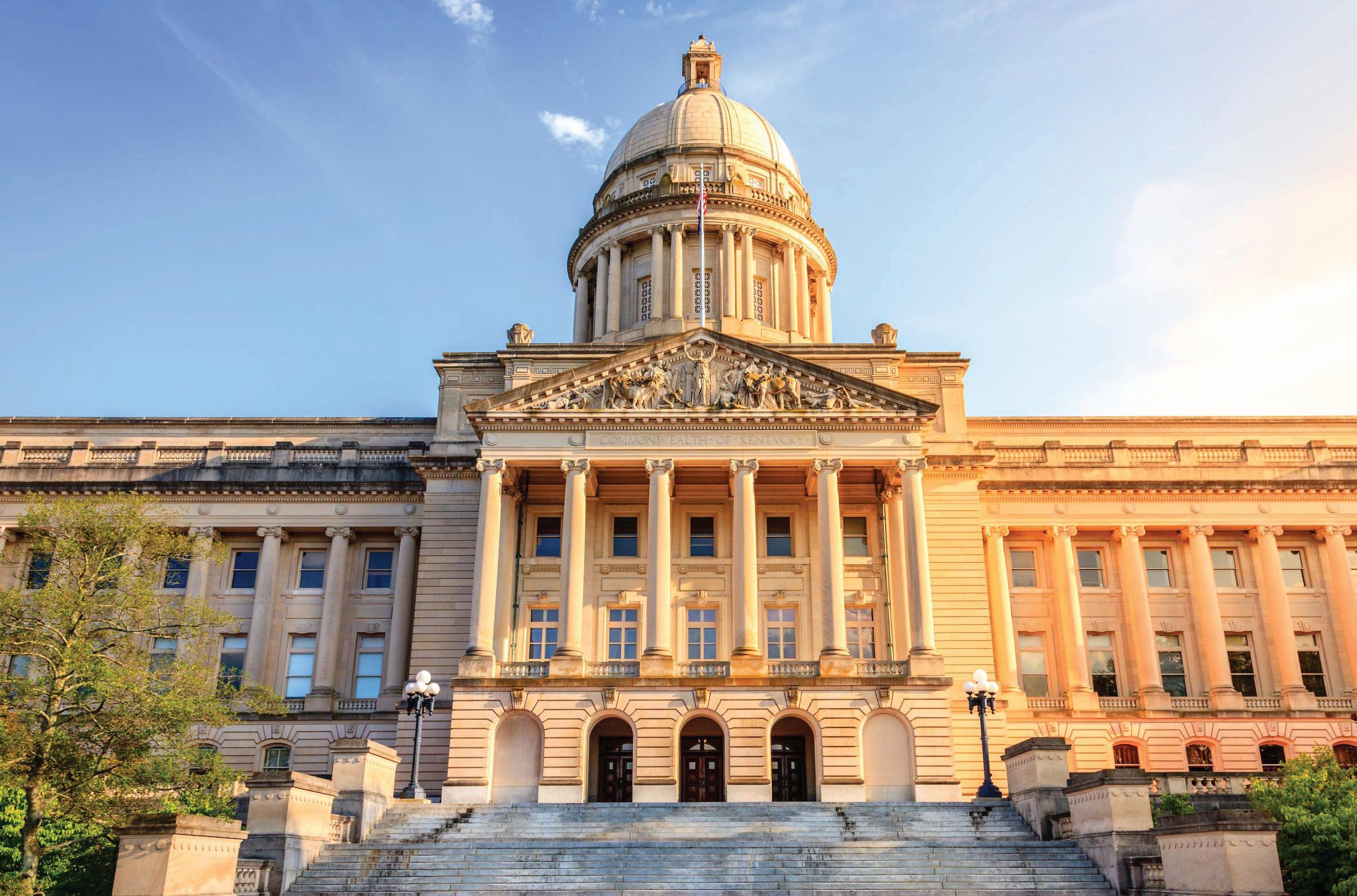
Progress continued in the 2023 session to reform Kentucky’s tax code to support economic growth and competitiveness.
In the first week of the 2023 session, lawmakers passed House Bill 1, which reduced Kentucky’s individual income tax rate from 4.5 percent to 4 percent effective January 1, 2024. This priority legislation came on the heels of House Bill 8 in the 2022 session, which created the framework for gradually phasing out Kentucky’s individual income tax. Governor Beshear signed the bill into law on February 17, making Kentucky the first state in the nation to pass income tax reduction legislation in 2023.

“The General Assembly prioritized House Bill 1 this session because of the importance of supporting hardworking Kentucky families and ensuring the long-term, sustainable growth of Kentucky’s economy and workforce,” said Representative Brandon Reed, the lead sponsor of House Bill 1. “I appreciate the business community’s partnership and advocacy for this critical legislation.”
Later in the session, lawmakers considered House Bill 360, which included a range of tax provisions, including cleanup to sales tax changes made in the 2023 session as well as new ideas. As this legislation saw several iterations, the Chamber successfully advocated against a proposal that would have threatened an important manufacturing sales tax exemption.
Lawmakers also passed House Bill 5 in the final days of session, which created a process to phase out state and local taxes on bourbon barrels while mitigating any financial losses to local communities. This has long been an anti-growth feature of our tax code and jeopardized the future of a critical Kentucky signature industry.
Another important tax win for the business community this session was the establishment of an optional passthrough entity tax. This electable tax – popularly known as a “SALT cap workaround” – allows owners of passthrough businesses like partnerships and S-corporations to optimize the state and local tax deduction on their federal income taxes, leading to an estimated savings of $40 million for Kentucky employers. Kentucky joins 30 other states with a pass-through entity tax. The Chamber also successfully rolled back a proposal to tax digital advertising services, which was initially included in House Bill 360.
This year’s pro-growth tax wins build on reforms that lawmakers have been pursuing since 2018. Thanks to these efforts, Kentucky’s state tax competitiveness ranking has improved from 37th in the nation to 18th and the state has begun setting records for levels of economic investment and job growth.
Kentucky’s signature bourbon and horse racing industries each passed in the final hours of the 2023 legislative session. Both House Bill 5, which phases out a property tax on aging spirits, and House Bill 551, which legalizes sports wagering, were signed into law by Governor Beshear the day after the bills saw final passage.
Sports betting has been a popular issue among the public for several years, with 2023 marking the fourth consecutive session that the Kentucky Chamber worked on similar legislation to keep the Commonwealth competitive— six of the seven states bordering Kentucky have already passed similar legislation.
“Sports betting was a no-brainer for us at the Kentucky Chamber,” said Kentucky Chamber President and CEO Ashli Watts. “The support for the issue is overwhelming, so why should we continue to let that revenue go out the door? This is simply another entertainment tool that will help Kentucky attract talent in the workforce and aid in tourism attraction as well.”
Sponsored by Representative Michael Meredith, House Bill 551 will legalize sports betting online and at existing facilities, such as race tracks, that are already authorized to conduct pari-mutuel wagering in Kentucky.
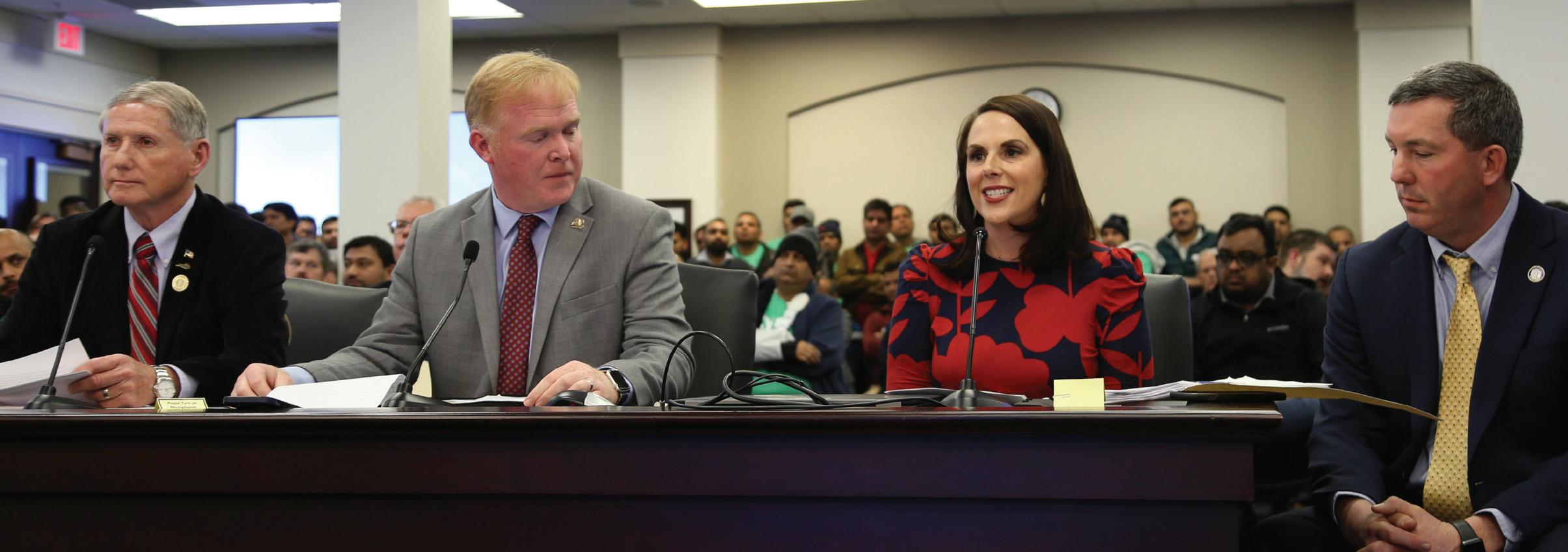
The bourbon barrel tax, which is the only tax of its kind in the entire country, creates a disincentive to store bourbon barrels in Kentucky while serving as a barrier to production startups in the state. Sponsored by Jason Petrie, House Bill 5 begins phasing out the barrel tax in 2026 and completes the phase-out by 2039.
“The bourbon industry made several concessions in the process to ensure that school districts currently receiving funding via the barrel tax would be kept whole and that the impact to local communities would be extremely limited,” Watts said. “We applaud their efforts in working toward a compromise that will eventually do away with a regressive tax on one of our signature industries.”
Earlier in the 2023 session, the General Assembly passed legislation to ban an illegal form of gambling known as “gray machines,” which are unregulated, untaxed betting machines that had been popping up at convenience stores, bars, and restaurants across Kentucky.
Sponsored by Representative Killian Timoney, House Bill 594 was also signed into law by Governor Beshear.
Many pro-business victories were enacted in the 2023 session of the General Assembly.
HB 594
Prohibits gray machines and clarifies definitions for illegal gambling in Kentucky.
HB 1
Further reduces the personal income tax rate from 4.5 percent to 4 percent to create a more competitive state tax environment.
HB 5
Modernizes alcohol tax policy to support economic growth.
HB 200
Creates the Kentucky Healthcare Workforce Investment Fund, a public-private partnership to improve access to workforce training and education opportunities for those interested in pursuing a career in healthcare.
HB 248
Ensures high-quality recovery housing by establishing statewide minimum standards for the operation of recovery residences.
HB 551
Authorizes sports wagering in Kentucky.
HB 5
Establishes an electable passthrough entity tax to allow small business owners to optimize the state and local tax deduction on federal income tax returns.
SB 54
Broadens the use of the Kentucky Educational Excellence Scholarships (KEES) to address Kentucky's workforce needs.
HB 146
Provides clarification and technical changes to unemployment insurance reform legislation passed in the 2022 legislative session in support of making the system more sustainable and encouraging rapid re-employment for laid-off workers.
HB 75
Provides beneficial changes to the hospital rate improvement programs.
HJR 39
Requires executive branch agencies to undertake efforts to address the benefit cliffs in Kentucky.
HB 165
Provides technical updates to the Employee Child Care Assistance Partnership.
HB 188
Allows contractors to self-perform tasks on state contracts when subcontractors fail to perform or certain conditions are not met.
HB 353
Clarifies that fentanyl found on test strips should not be included in the definition of fentanyl and test equipment is not drug paraphernalia.
HB 9
Creates a framework and a new state fund to assist distressed local communities in Kentucky in accessing new federal grant opportunities.
HB 224
Would have authorized expensive lawsuit loans in Kentucky that prolong the duration of cases leading to a less efficient tort system and higher costs for Kentuckians.
SB 15
Would have created new data privacy requirements that are difficult and costly for businesses.
HB 110, HB138, HB 542, SB 31, SB 139, SB 155, SB 237
Would have limited the rights of employers regarding vaccination policies and other workplace standards.
SB 32, HB 15, HB 280, SB 257, HB 471, HB 451
Would have established new mandates for employers.

The Kentucky Chamber along with the Kentucky Retail Federation, metro chambers of commerce, and the Kentucky Association of Manufacturers successfully defeated a data privacy bill that would have cost businesses $600 million, according to the Information Technology and Innovation Foundation. The legislation, sponsored by Senator Whitney Westerfield, passed the Senate but died in the House without a committee hearing.
The bill was based on legislation passed in California and Europe and also included unique definitions and provisions. Kentucky Chamber Senior Vice President of Public Affairs Kate Shanks testified in opposition to the legislation, stating that the bill would create confusing rules for businesses to comply with while disrupting the user experience online.
It is critical that any data privacy law passed in Kentucky balances the needs of different consumers when it comes to privacy. Those that are concerned about their data being used should be able to simply opt out without disrupting the user experience for all with repeated opt-in requirements. Equally important, is legislation should be crafted in a way that is understandable and reasonable for businesses to follow.
Complicating the data privacy landscape in the U.S. is the lack of action at the federal level. The Chamber has long supported a federal approach to data privacy regulation, but in the absence of such action, recommends Kentucky pass legislation modeled after what has been passed in many other states that balances the needs of consumers with a framework that is workable for businesses.
Student
HB 171
Would have improved access to higher education by providing awareness of costs and opportunities for aid when students consider continuing their education after high school.
SB 246
Would have required the Finance and Administration Cabinet to collect and maintain race and ethnicity data for certain contracts.
HB 417 & HB 588
Would have removed barriers to expungement by automating the process.
Several measures would have improved the economic climate of Kentucky. Unfortunately, many positive, pro-business measures below were not passed by the 2023 General Assembly.
HB 135
Would have allowed an autonomous vehicle to operate in Kentucky without a human driver if it meets certain safety conditions.
HB 123
Would have removed the limited liability entity tax for certain small businesses, thereby improving the tax code for simplicity and competitiveness.
HB 46
Would have improved Kentucky’s tax treatment of investments in machinery and other assets.
HB 18
Would have increased dual credit ceiling amounts. It would have also added career and technical education courses eligible to receive scholarships.
SB 137
Would have limited the recovery of medical costs from a lawsuit to actual costs paid or incurred to be paid after adjustments.
Kentucky Chamber Senior Vice President of Public Affairs Kate Shanks and Representative Nima Kulkarni (D-Louisville) discuss workforce issues
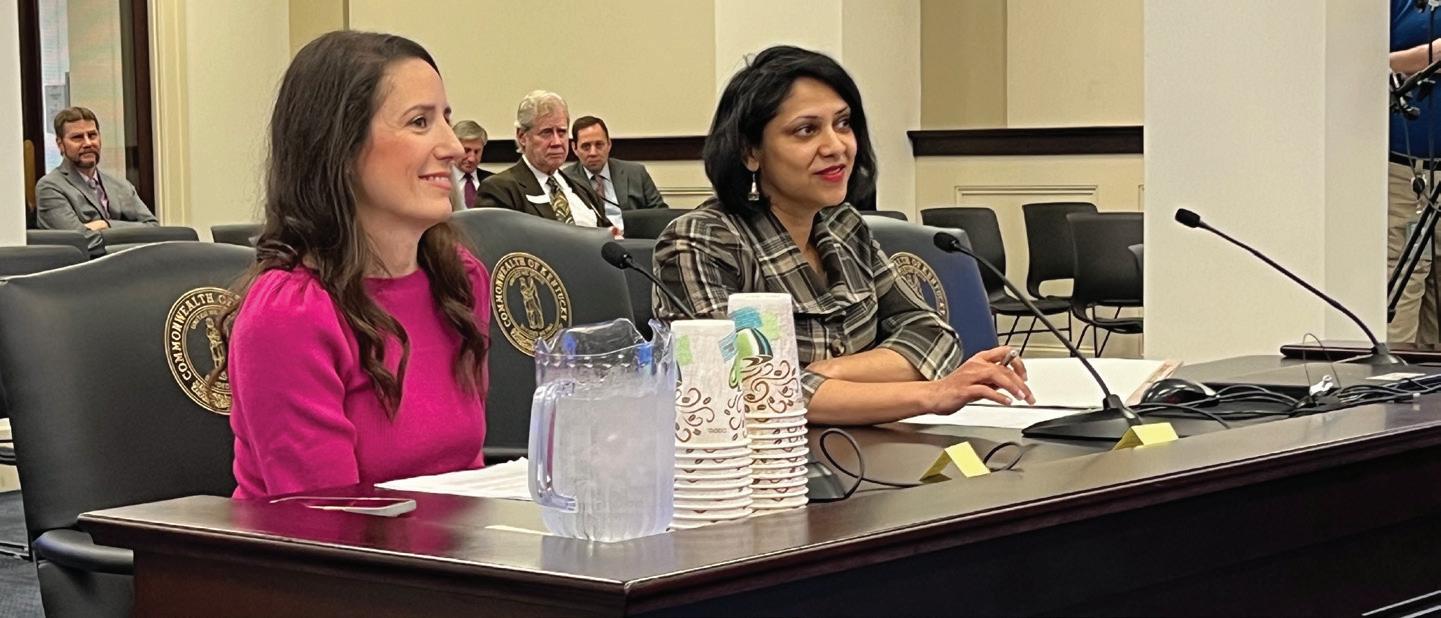
Business leaders participated in Small Business Day at the Capitol
224 Bills tracked throughout the legislative process
Local chambers of commerce engaged in advocacy process
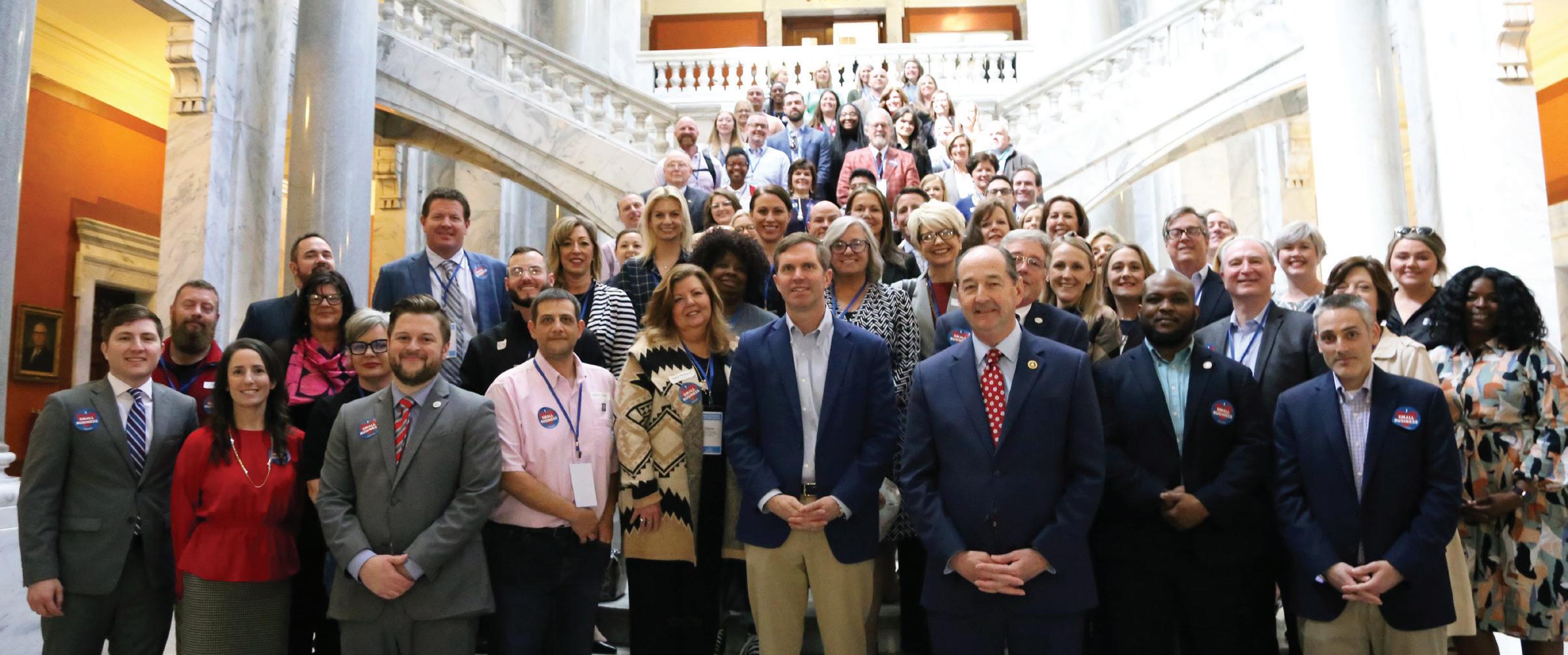
Kentuckians
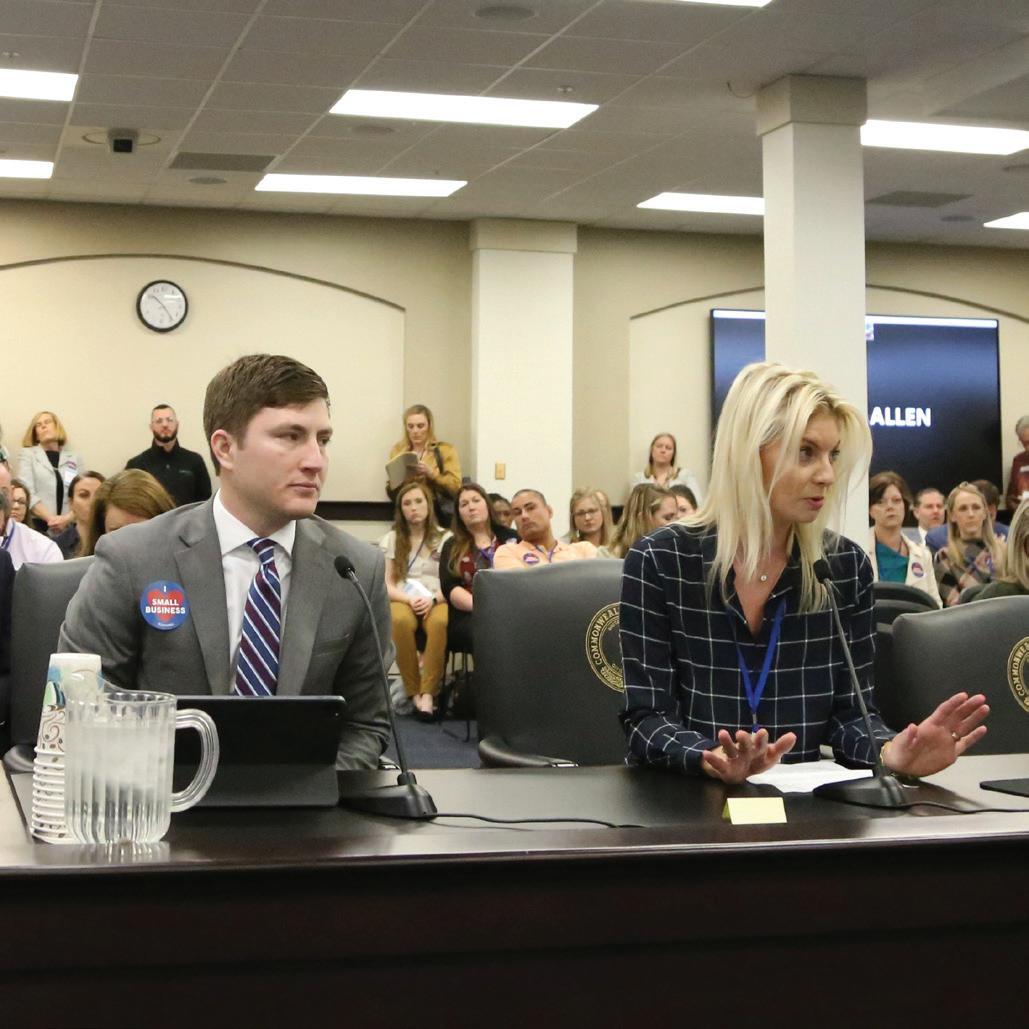
3,500
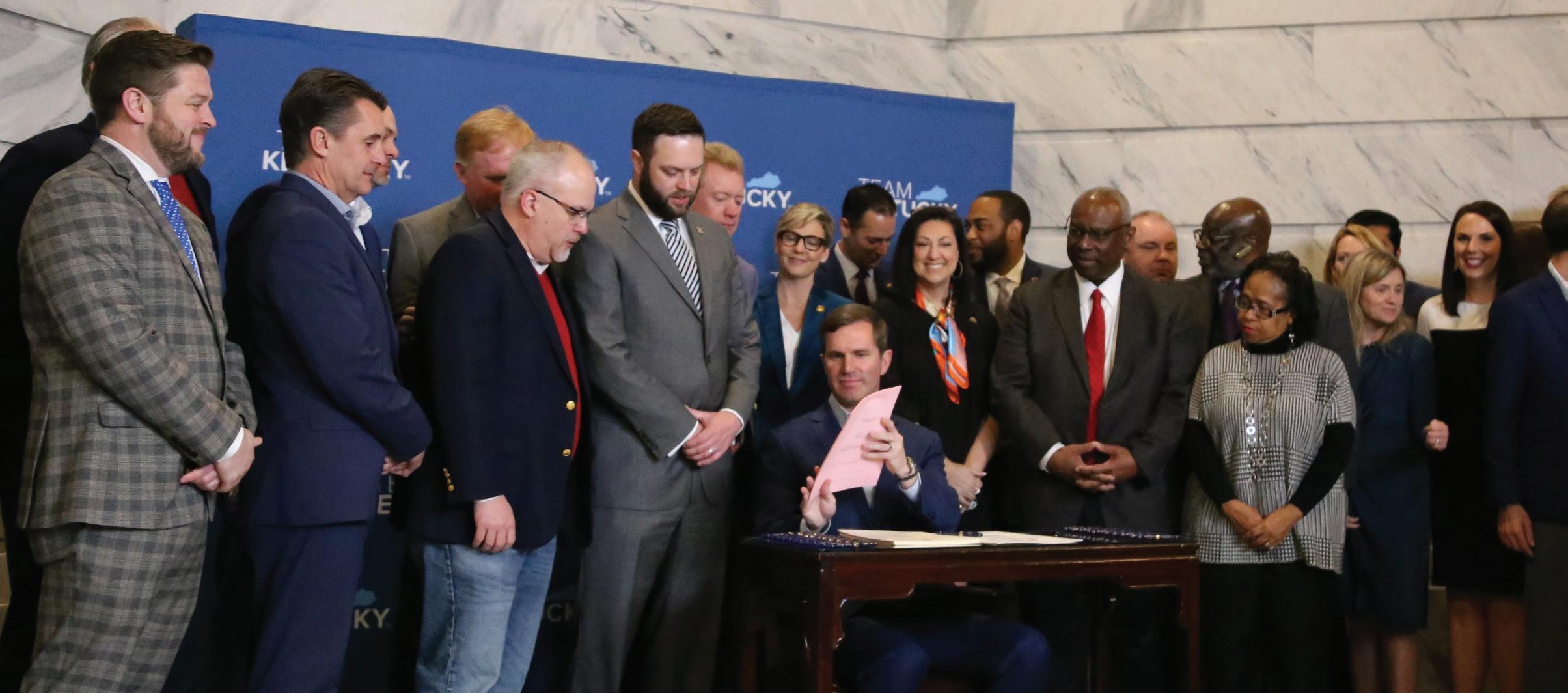
During this legislative session, the Chamber championed several bills to help alleviate industry-specific workforce shortages. Senate Bill 54, sponsored by Senator Jared Carpenter, allows Kentucky Educational Excellence Scholarship (KEES) awardees to use their scholarship money at proprietary schools that offer training programs within Kentucky's top-five high-demand workforce sectors. This legislation has been a long-time priority for the Chamber.
“I know from my own professional experience in the construction industry how badly businesses need access to trained workers,” said Senator Carpenter. “This legislation is an important step in addressing workforce challenges across some of Kentucky’s key industries. The Chamber has been steadfast in their advocacy for this bill, and I appreciate their partnership.”
House Bill 200, sponsored by Representative Ken Fleming, aims to address workforce challenges in the healthcare sector. It creates the framework for a new state scholarship fund to encourage public-private partnerships in training future Kentucky health care workers.
House Joint Resolution (HJR) 39, sponsored by Representative Johnathan Dixon, proposes next steps to address Kentucky’s benefits cliff challenges— when an individual suddenly loses eligibility for public assistance due to a wage or hour increase. The resolution charges state agencies with studying public assistance programs, analyzing the costs of the state's child care subsidy program, examining Kentucky's use of federal relief dollars, and more.
Lawmakers also passed important bills to address the substance use disorder crisis. House Bill 248, sponsored by Representative Samara Heavrin, creates statewide standards to ensure quality and safety in recovery housing. The General Assembly also passed House Bill 353, legislation sponsored by Representative Kim Moser to legalize fentanyl test strips in an effort to help reduce overdose deaths.
“I was proud to sponsor House Bill 248 because of the positive impacts this legislation will have on local communities, families, and our workforce here in Kentucky,” said Representative Heavrin. “Ensuring quality and safety in recovery housing protects vulnerable Kentuckians and keeps them on a path to rebuilding their lives. The Chamber and its members were key parts of the success of this bill.”
These efforts are part of the Kentucky Chamber's broader strategy to support and strengthen the state's workforce and economy. By investing in education and training programs and addressing barriers to employment, the Chamber hopes to attract and retain a skilled workforce that can drive Kentucky’s growth.
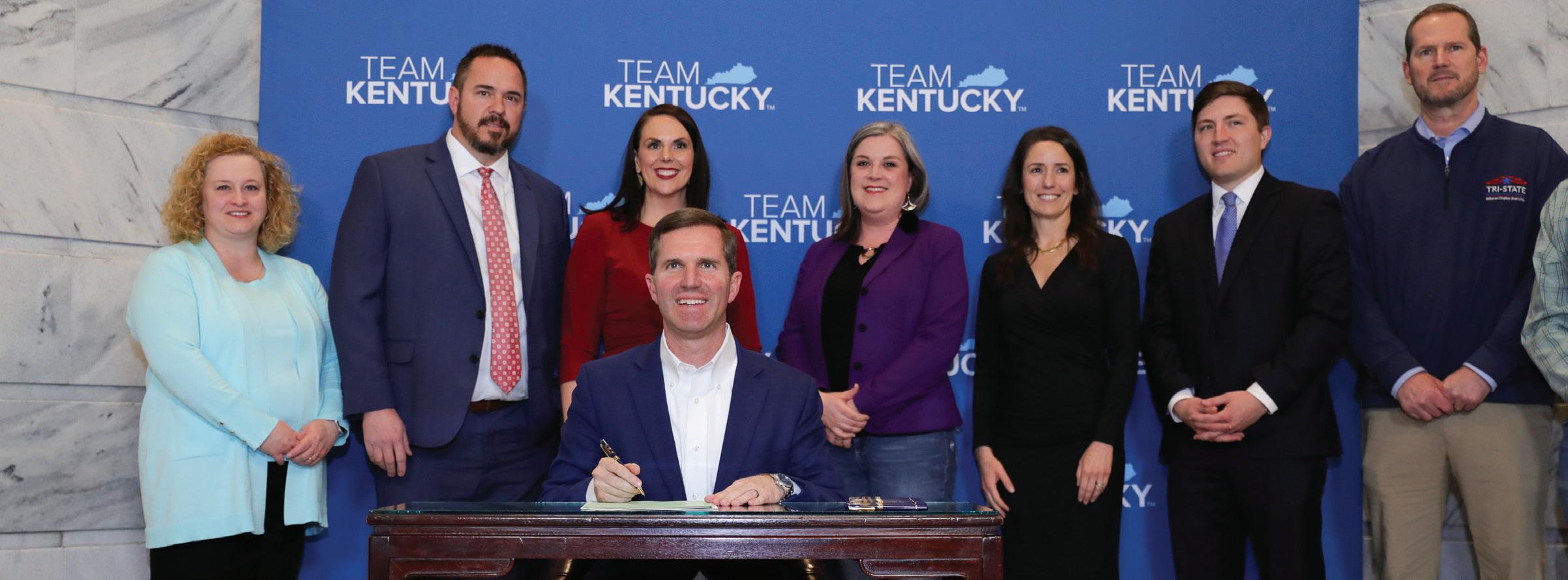

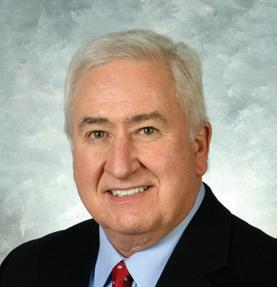







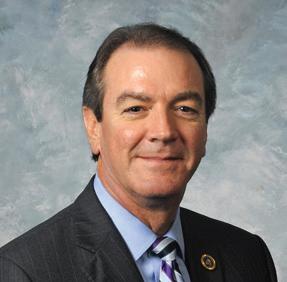

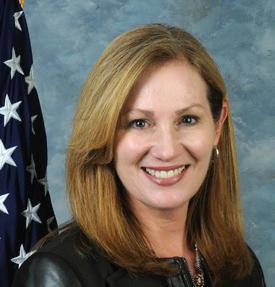







The following legislators had a perfect score on pro-business issues during the 2023 legislative session.


Aull, Chad
Baker, Shane
Banta, Kimberly
Bauman, Jared
Bentley, Danny
Blanton, John
Bojanowski, Christine
Bowling, Adam
Branscum, Joshua
Bratcher, Kevin
Bratcher, Steve
Bray, Josh
Bridges, Randy
Brown, George
Burke, Lindsey
Callaway, Emily
Calloway, Josh
Chester-Burton, Beverly
Clines, Mike
Decker, Jennifer
Dietz, Stephanie
Dixon, Jonathan
Doan, Steven
Dossett, Myron
Dotson, Ryan
Duvall, Robert
Elliott, Daniel
Fister, Daniel
Flannery, Patrick
Fleming, Kenneth
Frazier Gordon, Deanna
Freeland, Chris
Fugate, Chris
Gentry,
The roll call votes you see in this record reveal how legislators voted on bills the Kentucky Chamber publicly supported or opposed during the 2023 General Assembly (an “A” indicates a legislator has abstained and an "X" indicates that a legislator did not vote).
A “Yes” vote on bills the Kentucky Chamber opposed (SB 15) count against a legislator’s overall score. *House Bill 135 was vetoed after the General Assembly concluded, failing to reach final passage. **This legislator was not elected at the time of this vote. ***The Senate seat for District 28 is vacant. A special election for this seat is set for May 16, 2023.
The voting record includes only bills that received a full vote before the entire House and/or Senate. The legislation referenced in the voting record is based on the final version of the bill receiving a floor vote for each chamber.
To access the language of the bills highlighted in this document, visit the Legislative Research Commission’s website at legislature.ky.gov.
Rep.
Meredith
championed House Bill 551, legislation to enact sports wagering in Kentucky
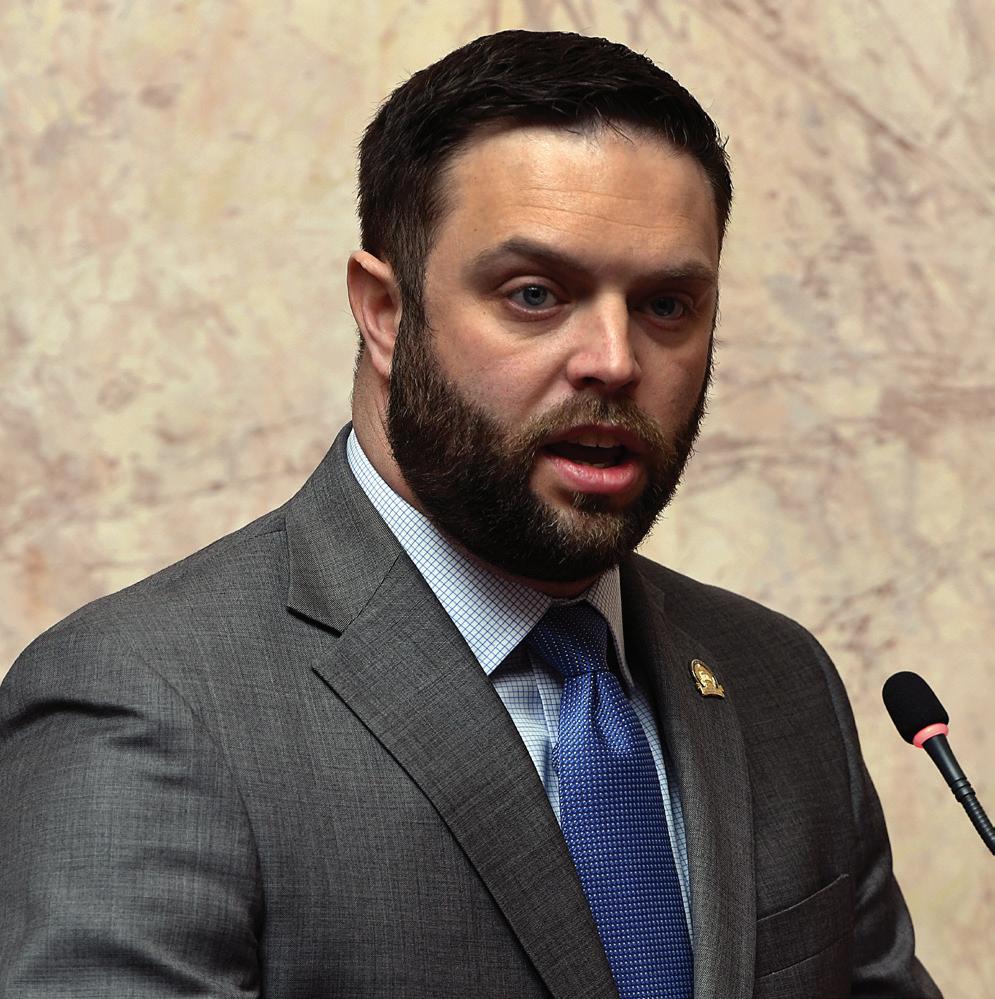
Speaker Pro Tempore David Meade (R-Stanford) provided leadership on important pro-business bills including tax code changes and workforce
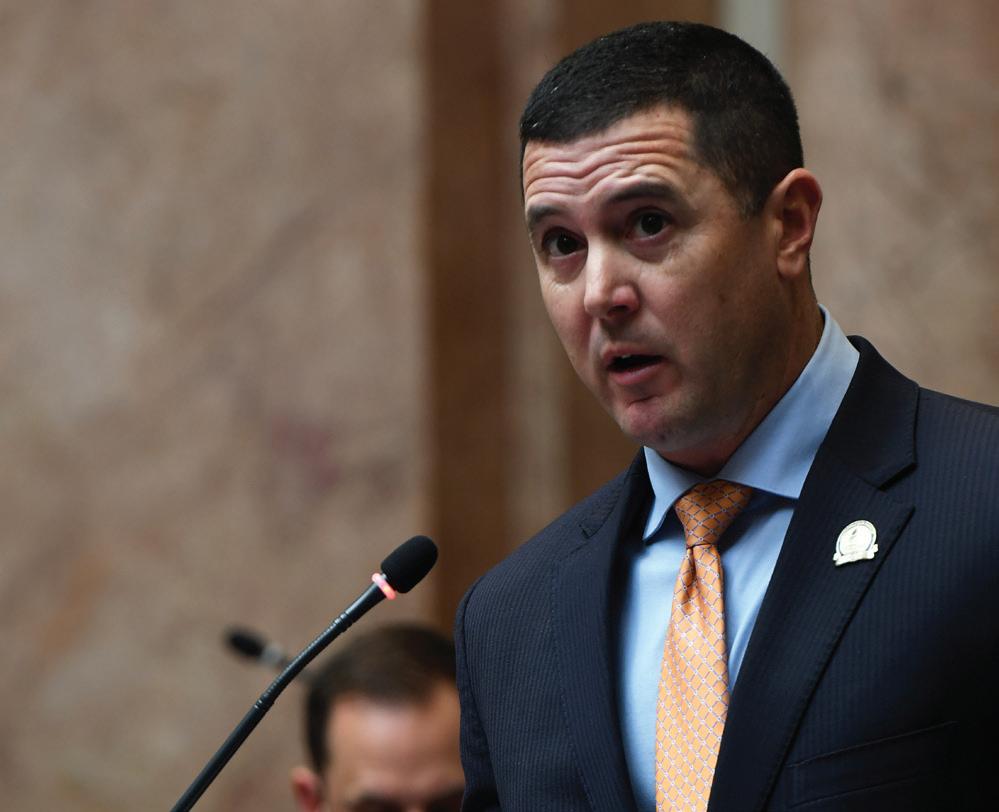
Kulkarni, Nima
Lawrence, William
Lewis, Derek
Lewis, Scott
Lockett, Matt
Maddox, Savannah
Massaroni, Candy
McCool, Bobby
McPherson, Shawn
Meade, David
Meredith, Michael
Miles, Suzanne
Moser, Kimberly
Neighbors, Amy
Nemes, Jason
Osborne, David
Palumbo, Ruth Ann
Petrie, Jason
Pollock, Michael
Pratt, Phillip
Proctor, Marianne
Rabourn, Felicia
Rawlings, Steve
Raymer, Rebecca
Raymond, Josie
Reed, Brandon
Riley, Steven
Roarx, Rachel
Roberts, Rachel
Rudy, Steven
Sharp, Scott L.
Smith, Thomas
Stalker, Sarah
Stevenson, Cherlynn
Stevenson, Pamela D.
Swann, Lamin
Tackett Laferty, Ashley
Tate, Nancy
Thomas, Walker
Timoney, Killian
Tipton, James
Truett, Timothy
Upchurch, Kenneth
Webber, Russell
Wesley, Bill
White, Richard
Williams, Wade
Willner, Lisa
Wilson, Nick
Witten, Susan Tyler
D-Louisville
R-Maysville
R-London
R-Hartford
R-Nicholasville
R-Dry Ridge
R-Bardstown
R-Van Lear
R-Scottsville
R-Stanford
R-Oakland
R-Owensboro
R-Taylor Mill
R-Edmonton
R-Louisville
R-Prospect
D-Lexington
R-Elkton
R-Campbellsville
R-Georgetown
“
The General Assembly prioritized House Bill 1 this session because of the importance of supporting hardworking Kentucky families and ensuring the long-term, sustainable growth of Kentucky’s economy and workforce. I appreciate the business community’s partnership and advocacy for this critical legislation.”
Kentucky Chamber Center for Policy and Research Executive Director
Dr. Charles Aull and Representative Russell Webber (R- Shepherdsville) testify on House Bill 146, legislation that makes improvements to the 2022 unemployment insurance reform bill, House Bill 4
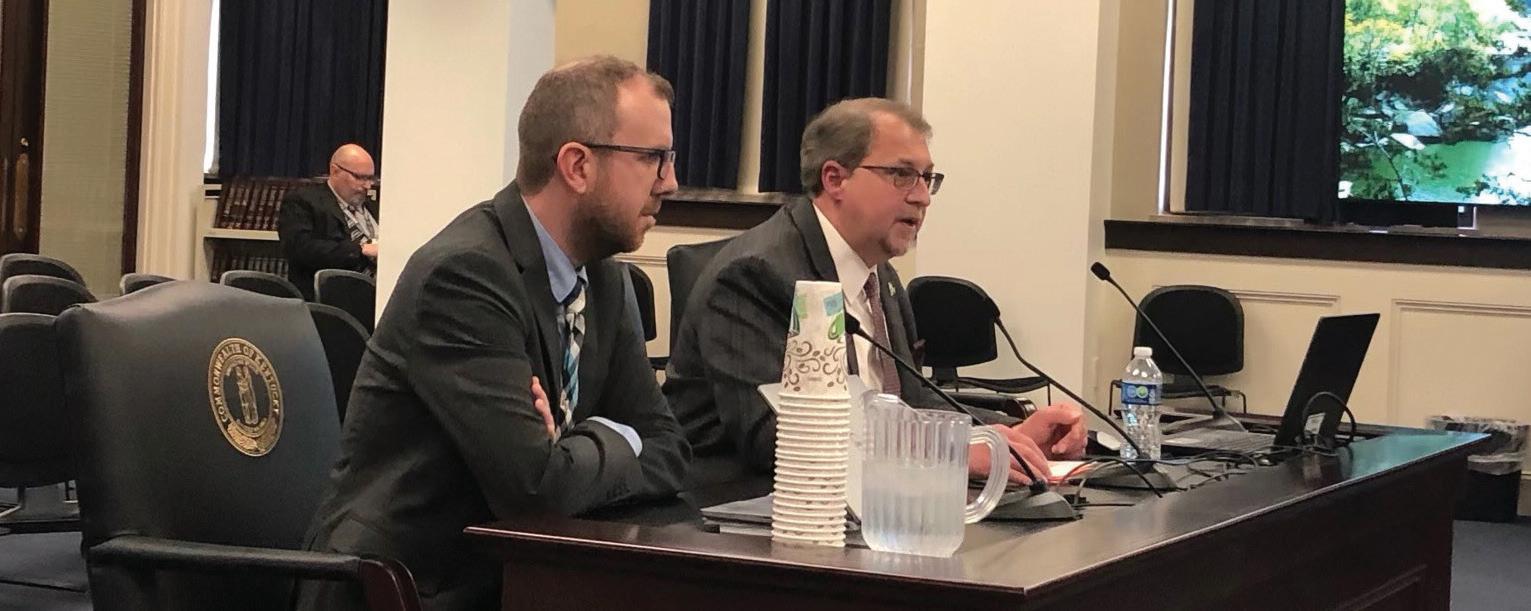
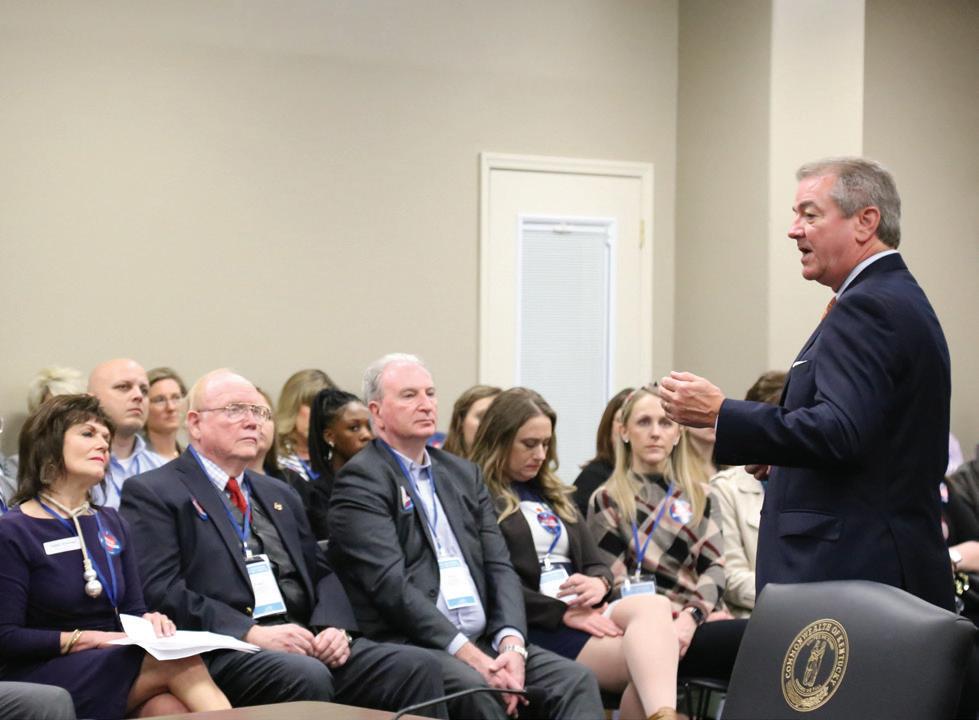
Representative Kim Moser (R-Taylor Mill) sponsored House Bill 353, legislation to legalize fentanyl test strips in an effort to help reduce overdose deaths
House Speaker David Osborne (R-Prospect) played an instrumental role in passage of House Bill 5, legislation that phases out a property tax on aging spirits
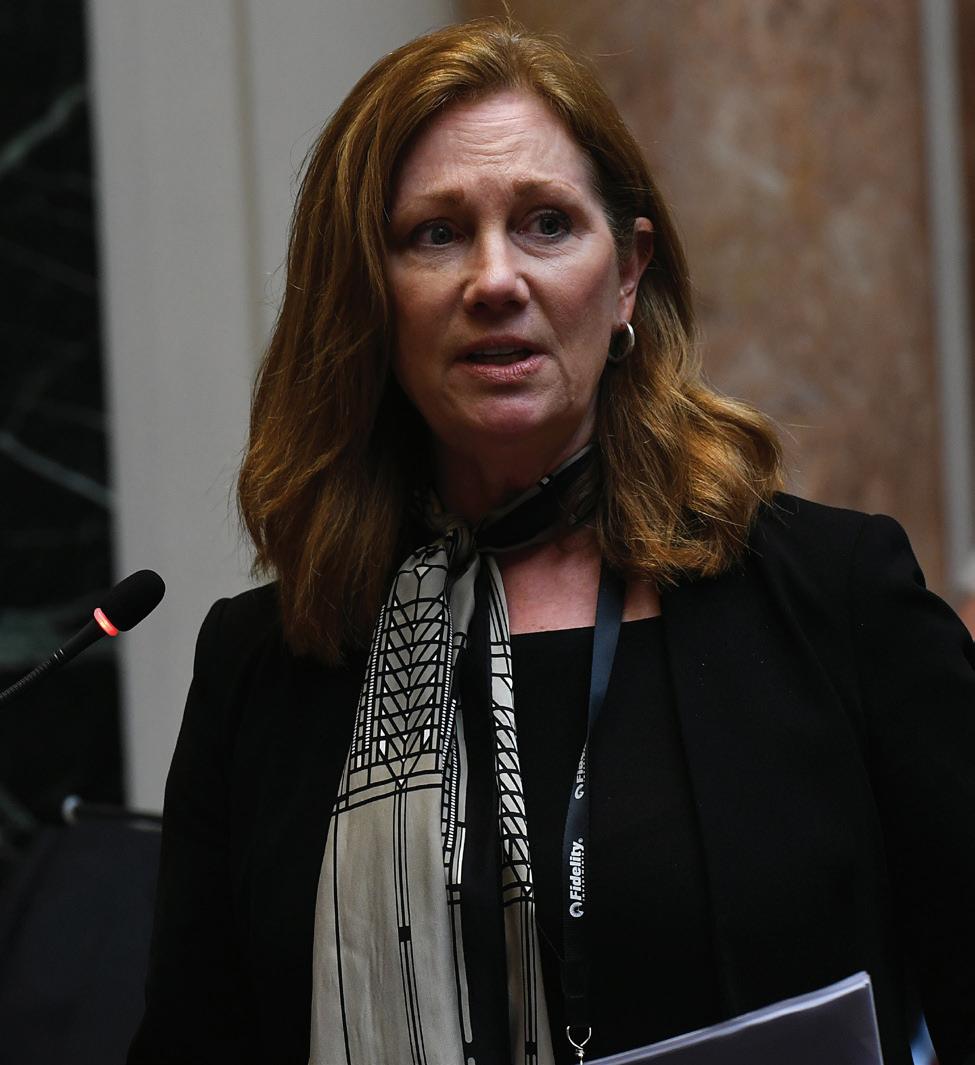
Berg, Karen
Boswell, Gary
Carpenter, Jared K.
Carroll, Danny
Chambers Armstrong, Cassie**
Deneen, Matt
Douglas, Donald
Frommeyer, Shelley Funke
Girdler, Rick
Givens, David
Harper Angel, Denise
Higdon, Jimmy
Howell, Jason
Mays Bledsoe, Amanda
McDaniel, Christian
Meredith, Stephen
Mills, Robert
Neal, Gerald
Nemes, Mike
Raque Adams, Julie
Schickel, John
Smith, Brandon
Southworth, Adrienne
Stivers, Robert
Storm, Brandon
Thayer, Damon
Thomas, Reginald
Tichenor, Lindsey
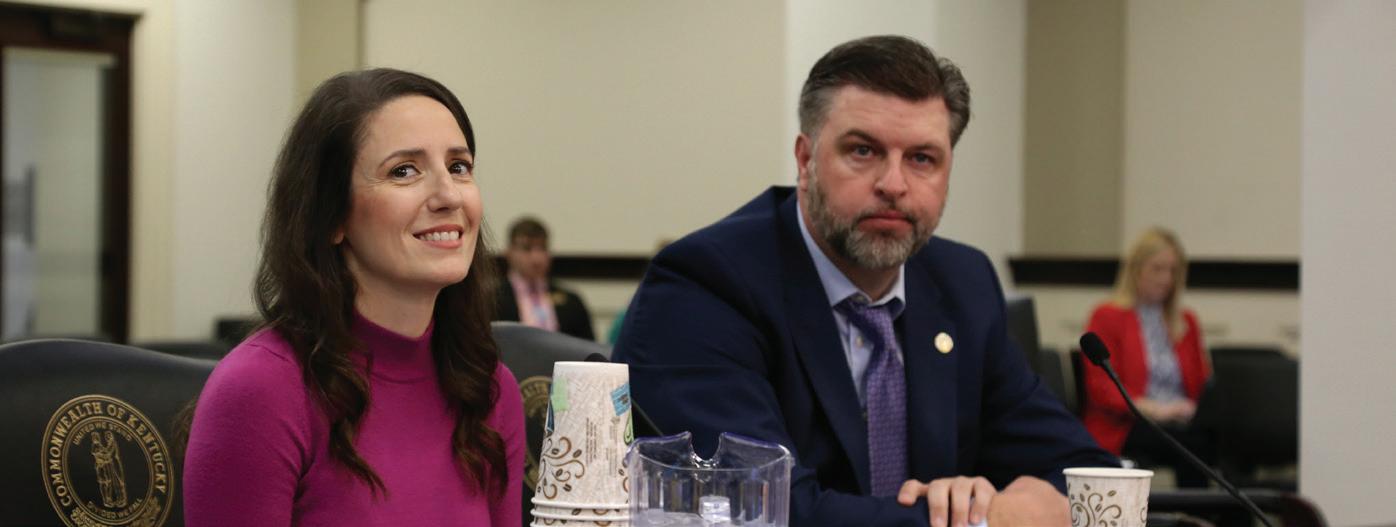
Turner, Johnnie L.
Webb, Robin
West, Stephen
Westerfield, Whitney
Wheeler, Phillip
Williams, Gex
Wilson, Mike
Wise, Maxwell
Yates, David
Senate President Robert Stivers (RManchester) was instrumental in ensuring passage of several top priorities of the business community
Kentucky Chamber Senior Vice President of Public Affairs Kate Shanks, Kentucky
Chamber 2023 Chair Kevin Smith of Beam Suntory, and Kentucky Chamber Center for Policy and Research Executive Director Dr. Charles Aull discuss a bold strategy to solving Kentucky’s workforce crisis
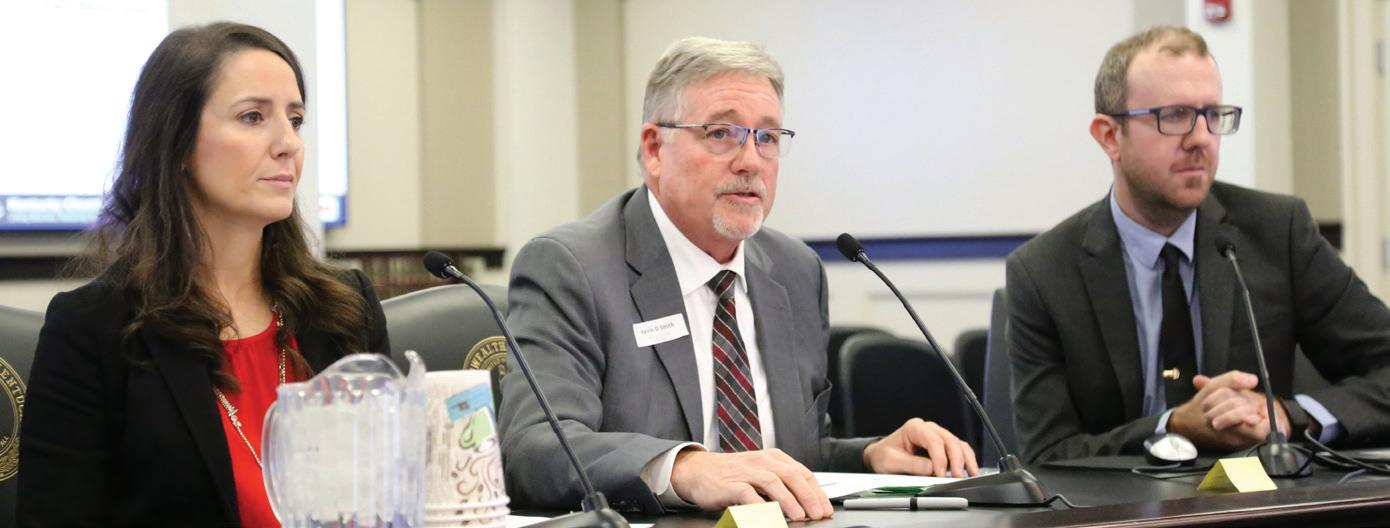
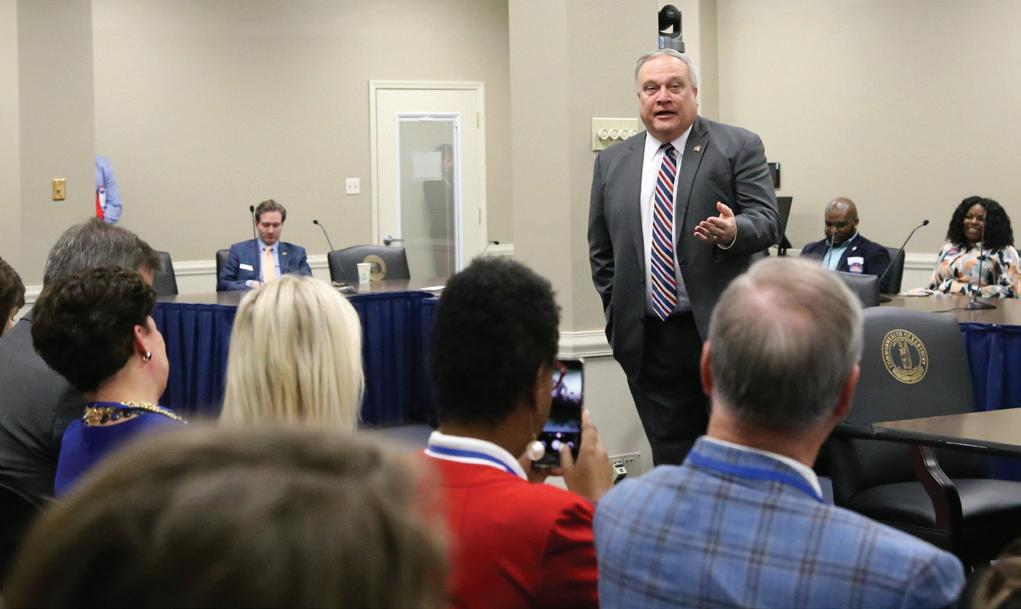
Senate Majority Leader Damon Thayer (R-Georgetown) provided leadership on important issues, including critical policies to protect Kentucky’s signature industries and efforts to block anti-business bills
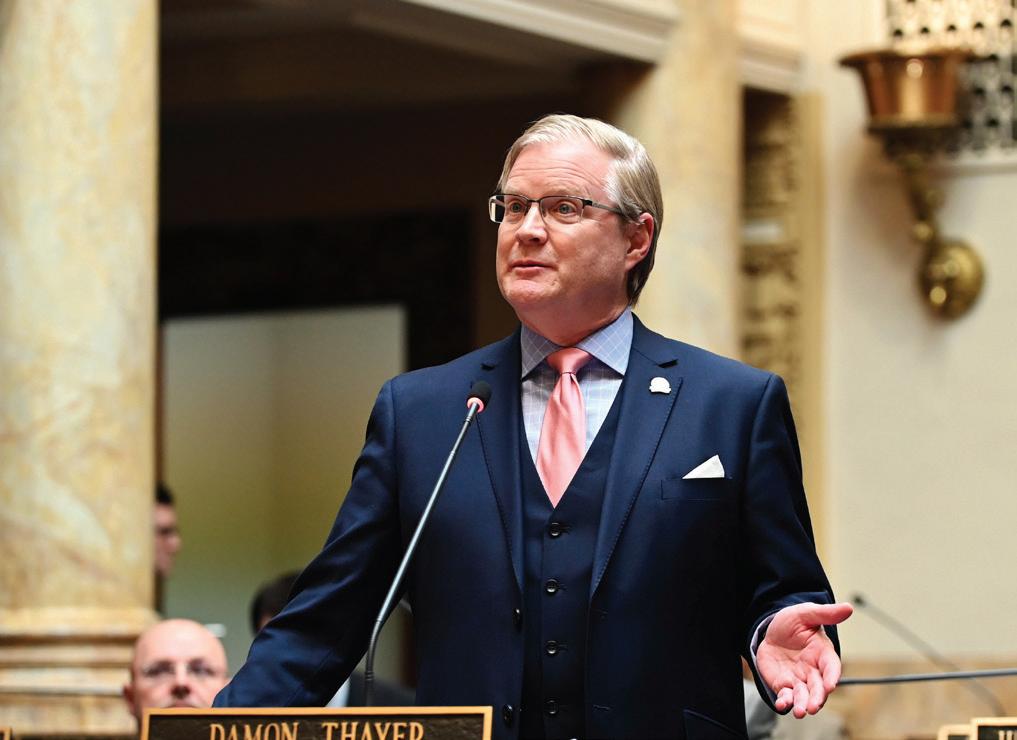











As the state’s premier business advocate, the Kentucky Chamber of Commerce is a recognized and respected voice at the state Capitol. With thousands of members representing every major industry sector, the Chamber’s diverse business policy initiatives converge upon one goal: a healthy, vibrant Kentucky economy. Ensuring that business has a voice in the legislative process, we are working with local business leaders to identify critical trends. As part of its advocacy mission, the Kentucky Chamber has developed several public policy councils composed of business leaders from around the state, each of which is responsible for developing legislative positions and priorities for their respective policy areas.


The Kentucky Chamber is the state’s largest business organization, representing businesses of all sizes throughout the Commonwealth. The Board of Directors is composed of 60 business leaders which work directly with the Chamber’s public policy councils to form the organization’s annual legislative agenda - the document which shapes our advocacy efforts each year.

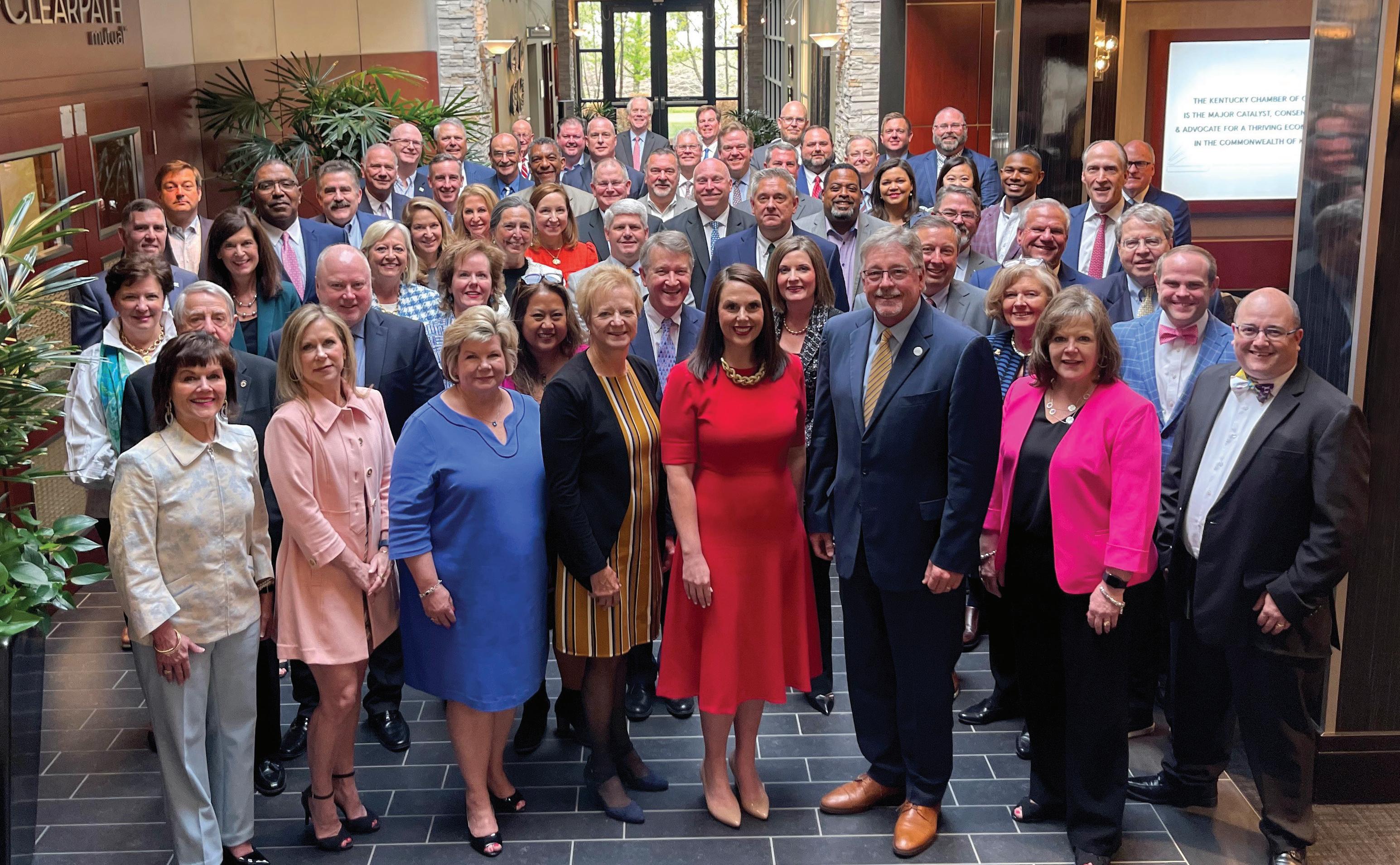










 Kate Shanks Senior Vice President, Public Affairs
Jacqueline Pitts Senior Vice President, Communications & Marketing
Amy Cloud Executive Director, Kentucky Chamber of Commerce Executives
Ashli Watts President & CEO
Claire True Coordinator, Public Affairs
Kate Shanks Senior Vice President, Public Affairs
Jacqueline Pitts Senior Vice President, Communications & Marketing
Amy Cloud Executive Director, Kentucky Chamber of Commerce Executives
Ashli Watts President & CEO
Claire True Coordinator, Public Affairs
As a small business owner, I can't be at
Capitol every
But so much of what happens in Frankfort impacts my business's ability to be successful in the Commonwealth. That's why I have found membership in the Kentucky Chamber to be so critical. The Chamber helps businesses of all sizes speak together and bring positive change by advocating for new laws, protecting businesses against policies that will harm growth, providing opportunities to be involved and informed during the legislative process, and promoting a collective vision

Kentucky's future.
L. Williams Sr., President & CEO 20/Twenty Strategic Consultants




“ ”
I congratulate the General Assembly on a successful legislative session aimed at improving Kentucky’s business climate. The Kentucky Chamber advocacy team had a very ambitious agenda to accomplish in a short session and worked with strong leadership and champions in the House and Senate to deliver for Kentucky’s job creators. As a result, Kentucky has much potential and is in a better position today to attract new businesses and employees. Our future is bright, and the Kentucky Chamber will continue our work to make Kentucky the best place to do business.




































